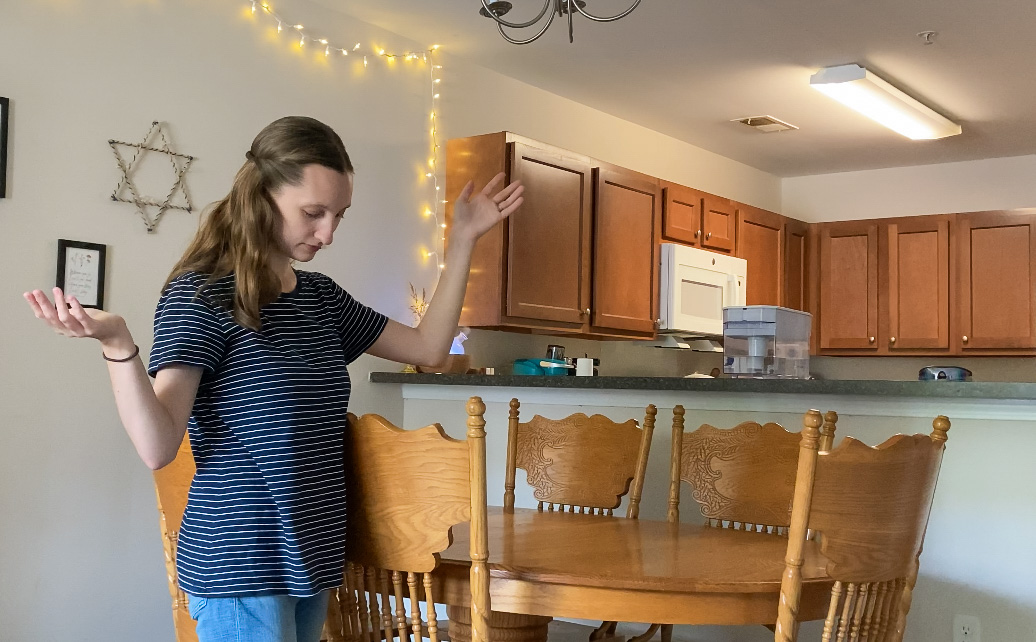Anointing Your Home: Step-by-Step Spiritual Practice for Blessing and Protection

Introduction: The Significance of Anointing Your Home
Anointing your home is a time-honored spiritual practice, rooted in faith traditions that use oil, prayer, and intentional rituals to dedicate a living space for peace, protection, and divine presence. While anointing itself simply means to rub or smear with oil, the deeper purpose is to invite spiritual blessing and create an atmosphere that nurtures well-being for everyone who enters. This guide provides detailed, actionable steps and explores the meaning, methods, and alternatives to help you anoint your home meaningfully and safely.
Understanding the Purpose and Power of Anointing
The act of anointing a home is not about superstition or mystical guarantees. Rather, it is a symbolic gesture of dedicating your space to positive intention and spiritual care. Many people choose to anoint their homes when moving into a new residence, at the start of a new year, or during times of anxiety, illness, or unrest. The practice is often accompanied by prayer, scripture reading, or worship, and can be tailored to individual beliefs and needs [1] . The core benefits reported by practitioners include:
- A greater sense of peace and calm in the home
- Heightened sense of spiritual protection and security
- Intentional focus on family well-being and unity
- Opportunity to reflect, reset, and invite positive change
According to spiritual leaders, the frequency and method of anointing can be personal-some recommend doing it annually, quarterly, or whenever you sense something is ‘off’ in the spiritual atmosphere of your home [2] .
Preparing to Anoint Your Home
Before beginning, take time to reflect on your intentions and gather any materials you may need. The essential items are simple:
- Oil: Olive oil is most commonly used, though any pure oil can be dedicated through prayer. Some prefer to pray over the oil, asking for its purpose to be set apart for blessing [4] .
- Scripture or Prayer: Prepare specific prayers or verses that are meaningful to you and your household. Many find comfort in passages like Psalm 91 or Isaiah 55:12.
Consider inviting family members or close friends to join. Some find it helpful to play worship music or light a candle as a way to foster a receptive, peaceful environment [1] .
Step-by-Step Guide: How to Anoint Your Home
1. Begin with Dedication and Cleansing
Open with a simple prayer, dedicating the oil and the time to your intended purpose. Some choose to pray over the oil itself, asking for it to be used for blessing and protection.
2. Move Room by Room
Start at your main entrance. Using a small amount of oil on your fingertip, mark a cross or another symbol of your faith on the doorframe. As you do so, pray specifically for those who enter and leave your home-that they would come and go in peace and joy [3] . Repeat this process as you move through each room:
- Pray over the kitchen for nourishment and hospitality. For example, “Bless the meals prepared here and the conversations shared.”
- In each bedroom, ask for restful sleep, safety, and emotional well-being for those who sleep there.
- For shared spaces, pray for unity, grace, and uplifting interactions among family and guests.
Some also anoint windows, corners, or even the perimeter of their property, asking for comprehensive protection and blessing [3] .
3. Invite Spiritual Presence and Set Boundaries
As you pray and anoint, invite the presence of the Holy Spirit or your spiritual guide. Ask for negative influences to be removed and for your home to be filled with peace, love, and joy. If you are concerned about specific issues-such as fear, anxiety, or recurring conflict-pray directly into those areas, inviting transformation and healing [4] .
4. Conclude with Gratitude and Ongoing Practice
End your ritual by expressing gratitude for the blessings already present in your home. Consider leaving soft worship music playing or continuing to pray as you feel led. Many who practice home anointing report feeling a renewed sense of peace and clarity afterward [1] .
Real-World Examples and Case Studies
One family shared that after anointing each room and praying for specific needs-such as restful sleep, positive relationships, and protection from illness-the atmosphere in their home changed tangibly, with visitors commenting on the sense of peace and welcome they felt [3] .
Another practitioner anointed their home every quarter, particularly during times of transition, such as starting a new school year or after experiencing illness. They reported a noticeable reduction in anxiety and a stronger sense of unity among family members [1] .
Potential Challenges and Solutions
Challenge: Family members may feel uncomfortable or skeptical about the practice.

Source: theprophetsoil.com
Solution: Explain the symbolic nature and intention behind anointing. Emphasize that it is a personal choice and encourage openness without pressure. Focus on the outcomes, such as increased peace or sense of togetherness.
Challenge: Concerns about religious differences among household members.
Solution: Adapt the prayers and symbolism to match the comfort level and beliefs of everyone involved. The key is intentionality and respect for all participants.
Alternative Approaches
While oil is a traditional part of anointing, some may prefer to use water, incense, or simply spoken intentions, especially if allergies or sensitivities are a concern. Others choose to walk through their homes reading prayers aloud or singing hymns, focusing less on physical actions and more on the spiritual dedication [4] .
For those seeking additional structure, many faith communities offer house blessing ceremonies or can connect you with leaders who perform such rituals. If interested, consider contacting your local church or spiritual center for guidance.

Source: wikihow.com
Accessing Resources and Further Support
If you wish to learn more about prayers, scriptures, or receive ongoing support, consider searching for “home blessing prayers” or “anointing oil prayers” through your preferred faith community’s official website or spiritual resource center. Many organizations provide downloadable guides or can connect you with experienced practitioners for personalized advice.
For specific guidance, you may consult with clergy or spiritual mentors, or explore reputable books and teachings on the subject. Remember, there is no single “right way”-the most important element is your sincerity and intention.
Key Takeaways
Anointing your home is a flexible, meaningful way to create a sense of peace, protection, and spiritual intentionality. Whether you follow every step or adapt the process to your beliefs, the act of dedicating your living space can foster a renewed sense of gratitude and unity for all who dwell within.
References
- [1] Embracing Life (2022). Praying Over Your Home – Practical steps and spiritual insights.
- [2] LifeLine SOC. Anointing & Protection of Family & Homes – Guidance on spiritual protection.
- [3] Danita Jenae. How to Anoint Your Home & Spiritually Clean House – Personal experiences and step-by-step process.
- [4] Ann Voskamp (2020). Why You Should Bless Your Home & How to Do It – Symbolic meaning and practical advice.






